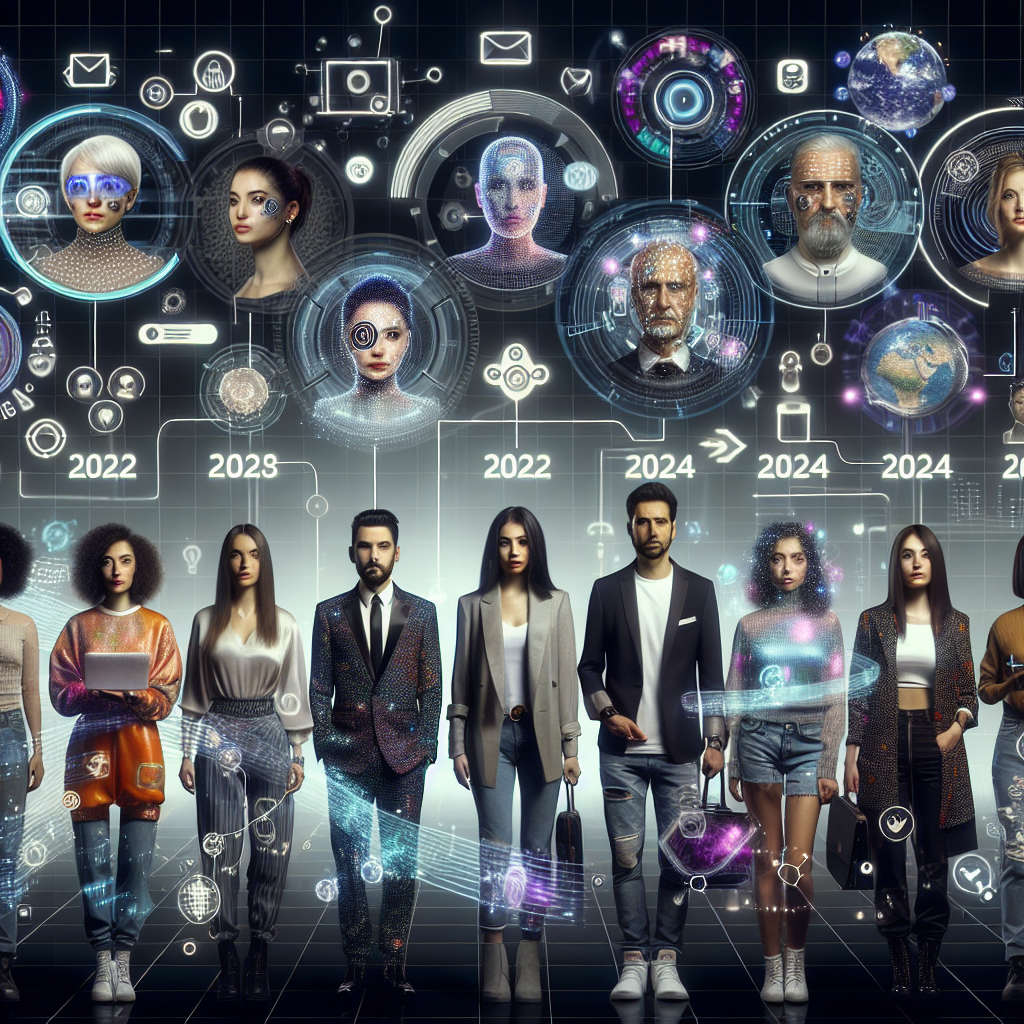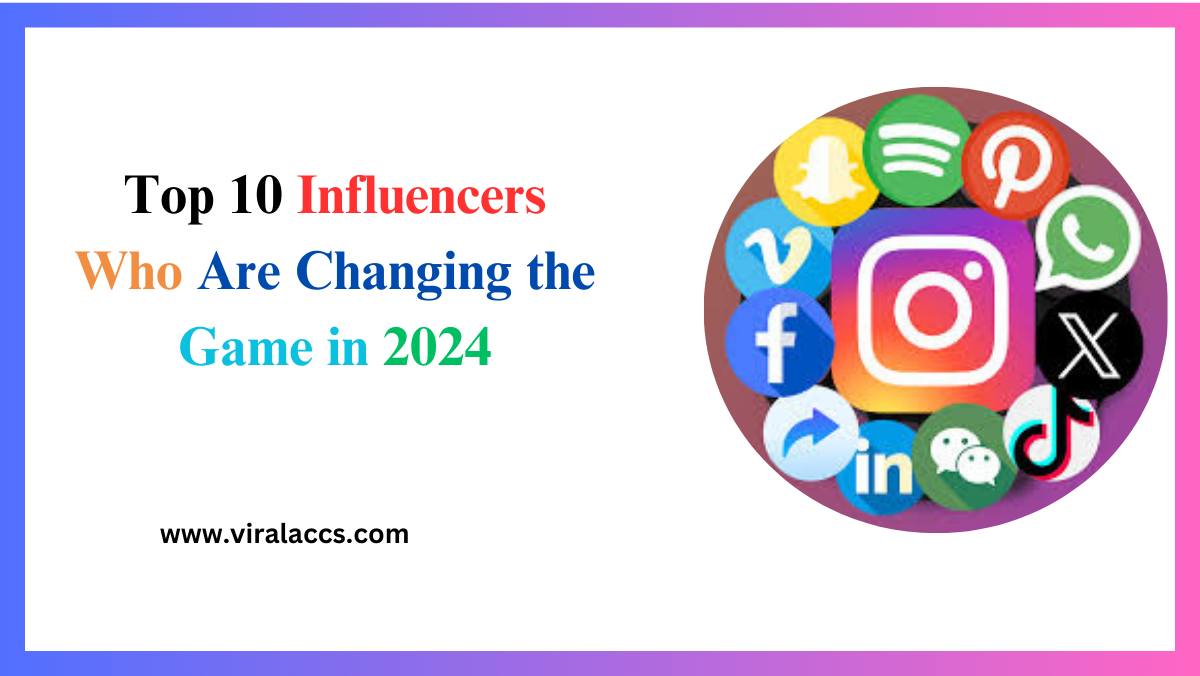Introduction to Influencers Marketing in 2024
Influencers marketing has taken the digital world by storm, evolving beyond simple product endorsements to become a sophisticated strategy for brand growth. In 2024, Influencers Marketing wield more power than ever, shaping trends, driving consumer behavior, and social media, and fostering community engagement. But who are the trailblazers leading this charge? This blog post explores the top 10 Influencers Marketing who are changing the gacharamctere in 2024, detailing their unique strategies, audience engagement tactics, and future predictions.
Spotlight on Notable Influencers
Identifying the most impactful Influencers Marketing is no small feat. These individuals stand out not only for their massive followings but also for their innovative approaches and authentic connections with their audiences. The following influencers are making waves across various platforms, setting new standards for what it means to be influential in 2024.
Unique Strategies They Use
What sets these influencers apart are the unique strategies they employ to captivate and retain their audience’s attention. From leveraging cutting-edge technology to personalized marketing approaches, these influencers are constantly pushing the boundaries of what’s possible in digital marketing.
AI-powered content creation is one such strategy. Influencers like Emma Chamberlain use AI tools to generate engaging, relevant content that resonates with their followers. This allows them to maintain a consistent posting schedule without compromising quality.
Another notable strategy is the use of data analytics to tailor content to audience preferences. Influencers like Marques Brownlee analyze engagement metrics to refine their content, ensuring it aligns with what their audience wants to see.
Lastly, collaborative campaigns with other influencers and brands help amplify their reach and impact. By partnering with complementary influencers, they can tap into new audience segments and strengthen their brand presence.
How They Engage with Their Audience
Engagement is the lifeblood of influencers marketing. The top influencers of 2024 understand this and go to great lengths to foster genuine connections with their followers.
Interactive content such as polls, Q&A sessions, and live streams are popular engagement tactics. Influencers like Charli D’Amelio frequently host live streams where they interact with fans in real-time, creating a sense of community and belonging.
Another effective engagement strategy is storytelling. Influencers like David Dobrik use compelling narratives to share their experiences, making their content relatable and engaging.
Personalized responses to comments and messages also play a crucial role. Influencers who take the time to reply to their followers’ comments and DMs build stronger relationships, fostering loyalty and trust.
Predictions for the Future
Looking ahead, the landscape of influencers marketing is set to undergo significant transformations. One of the most anticipated trends is the rise of micro-influencers. With their highly engaged niche audiences, micro-influencers offer brands an opportunity to reach specific segments more effectively.
Another prediction is the increased use of virtual influencers. These AI-generated personalities are gaining popularity for their ability to create content around the clock and appeal to tech-savvy audiences.
Lastly, we can expect greater integration of augmented reality (AR) in influencer marketing. AR technology will allow influencers to create immersive experiences, making their content more interactive and engaging.

The Ethical Considerations of Influencer Marketing
As influencer marketing continues to expand its reach, ethical considerations have become increasingly significant. The transparency of sponsored content is a prime concern, with influencers facing pressure to clearly disclose their paid partnerships to maintain trust with their audiences. This transparency is vital for preserving authenticity and sustaining the long-term engagement that brands seek.
Another ethical issue is the perpetuation of unrealistic standards, particularly in the fashion and beauty industries. Influencers wield immense persuasive power, and some have been criticized for promoting unattainable lifestyles or beauty ideals. This has led to calls for more responsibility and mindfulness in their messaging, encouraging influencers to champion diversity and representation in their content.
Moreover, the environmental impact of promoting consumption-oriented lifestyles has also come under scrutiny. Influencers are increasingly expected to integrate sustainable practices and promote eco-friendly products, aligning their platform with broader societal goals of sustainability and conservation.
As the influencer landscape evolves, it will be crucial for both influencers and the brands they collaborate with to address these ethical challenges proactively. By fostering an environment of ethical responsibility, the influencer industry can continue to thrive and maintain its powerful role in shaping consumer perceptions and behaviors.
The Regulatory Landscape of Influencers Marketing
As the influencer marketing industry matures, regulatory frameworks are becoming increasingly prominent to ensure fairness and clarity in influencer-brand collaborations. In various parts of the world, authorities are implementing stricter guidelines that require clear disclosure of sponsored content. The Federal Trade Commission (FTC) in the United States, for instance, mandates that influencers explicitly tag paid promotions with clear labels like #Ad or #Sponsored to avoid deceptive practices.
These regulatory measures aim to protect consumers from misleading advertising and foster transparency between influencers, brands, and their audiences. Violations of such regulations not only result in financial penalties for influencers and brands but can also damage reputations and erode audience trust. Therefore, staying informed and compliant with these guidelines is critical for maintaining credibility in the digital space.
Furthermore, as social media platforms continue to evolve, they are also playing a vital role in shaping and enforcing these regulations. Platforms like Instagram and YouTube have introduced specific tools and features to help influencers and brands comply with disclosure requirements effortlessly. As the regulatory landscape continues to develop, influencers will need to navigate these changes adeptly to sustain their influence and brand partnerships. The commitment to following legal standards will set responsible influencers apart, ensuring their continued success in an ever-changing digital arena
Conclusion
In summary, the top influencers of 2024 are not just content creators; they are innovators, community builders, and trendsetters. Their unique strategies, audience engagement tactics, and forward-thinking approaches are redefining the digital marketing landscape. For businesses looking to stay ahead, understanding and leveraging these influencer trends is crucial. Ready to explore more? Start your influencer marketing journey today and see how these game-changers can elevate your brand.








